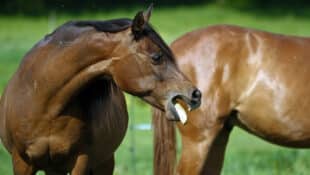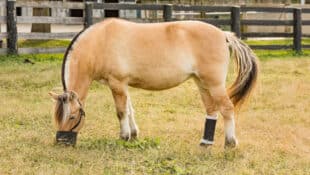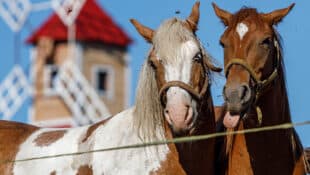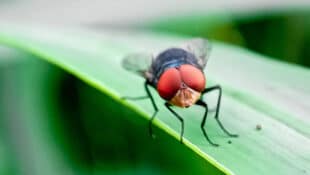While it is still early days, there is some encouraging research into nebulized Alpha-2-macroglobulin as a treatment.
Wood chewing is likely triggered by an underlying issue such as nutritional deficiency, stress, pain, gastrointestinal distress or boredom.
A new study explores owners’ perceptions of what 'well-cared-for' looks like and the role it plays in maintaining horses at a healthy weight.
Equine hepatitis viruses can pose a serious risk to horses' health, but the impact can be minimized with prevention and good management.
Once eradicated, this flesh-eating parasite has made a resurgence, resulting in the US southern border being closed to horses and livestock.
A study at KER using the Bio-Thermo® microchip looked at temperature, humidity, fitness, and most effective cooling methods.
Warm weather has arrived, and with it an influx of ticks and the diseases they carry. Property and management strategies can reduce exposure.
This upper airway issue that restricts airflow and limits performance may soon be treated with a revolutionary new minimally invasive tie-back surgery.
A new study found that haynet use can impact cervical vertebra and range of motion, and suggests more frequent chiropractic adjustments.
Although perhaps not in the headlines as it was in 1999, this mosquito-borne virus is not gone, and should not be forgotten.










